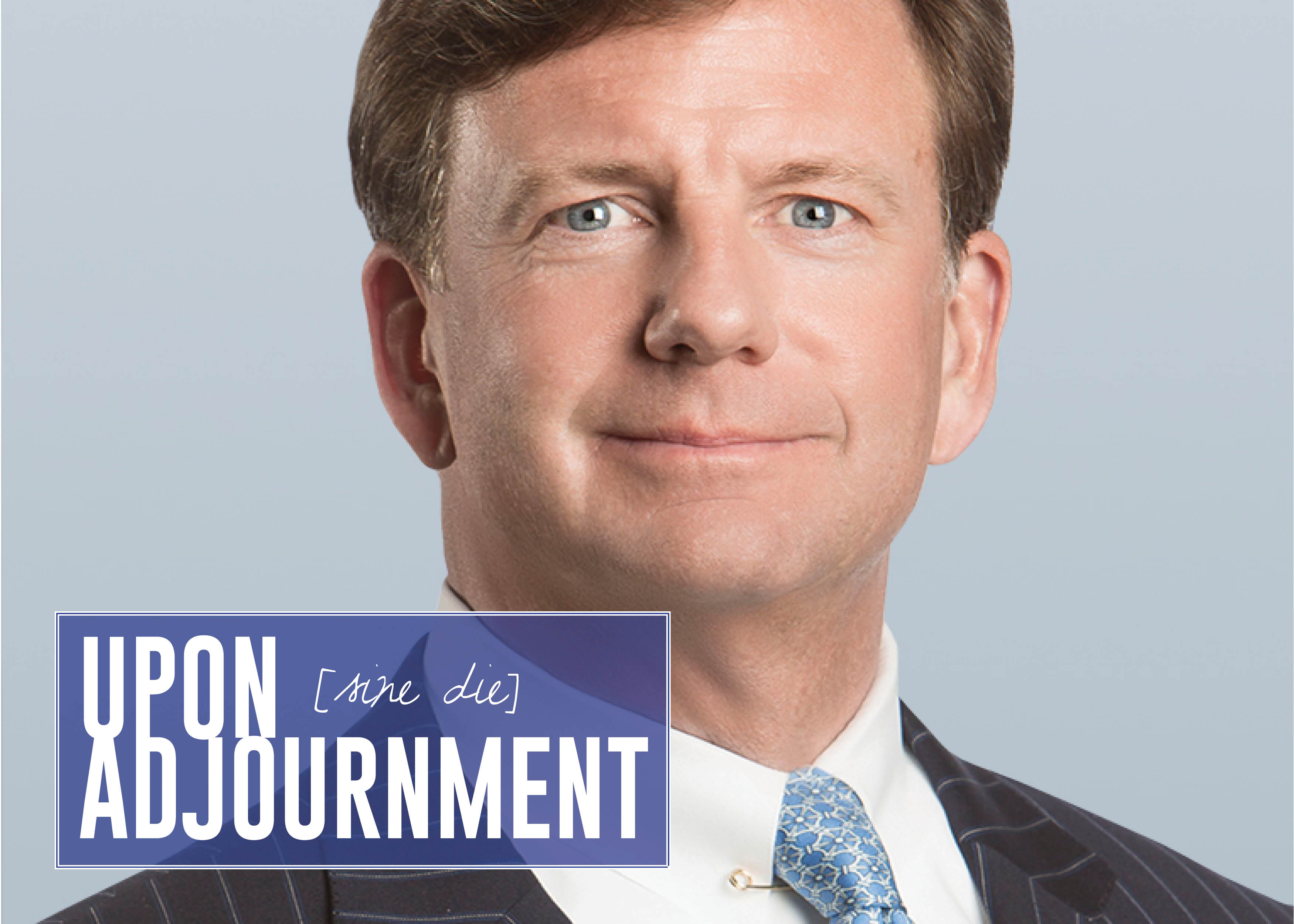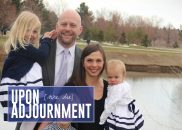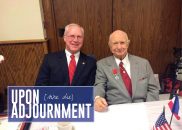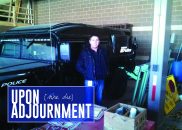
Jon Dalton has served as the Mayor of Town & Country since 2005. Prior to that time, he sat on the Board of Alderman, having defeated the incumbent by approximate 70 percent, and when the then-current mayor did not seek reelection, Dalton was recruited for the office. In his contested races for reelection, Dalton prevails by around 80 percent margin. Dalton is a Partner at the law firm of Armstrong Teasdale LLP and practices in the areas of business transactions, regulatory matters and government affairs.
“My first love is the law,” Dalton says. I enjoy every aspect of client representation and service, which consumes most of my professional time and attention. That training and experience enhances my ability to give back to my community, be it Town & Country or Old Warson Country Club, where he just completed a two-year term as Club President.
Scott Faughn, owner and publisher of Upon Adjournment Magazine and The Missouri Times, sat down with Jon Dalton, attorney at Armstrong Teasdale, to discuss Dalton’s eight years as mayor of Town & Country. Below is how their conversation unfolded.
A version of this was ran in our previous issue.
Scott Faughn: What made you run for mayor of Town & Country?
Jon Dalton: After much reflection, I saw a substantial need in our community that was unfulfilled. I’m a believer that public service should occur at the three-way intersection of need, preparation and planning. And there was a real need in my city for a higher level, a more substantive and sophisticated level of constituent representation. Unfortunately, the City was being operated in a way that frustrate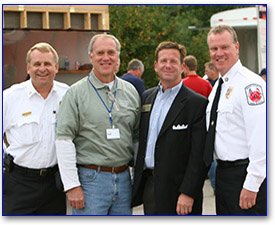 d or inhibited its potential. Town & Country is one of the highest per capita income cites in the state of Missouri with wonderfully diverse physical and personal attributes; hence, its name, “Town & Country.” We have invested millions of dollars in our infrastructure and are blessed with a vibrant economy. A solid comprehensive plan guides all developments, we maintain a one-acre minimum residential lot size, provide first-class city services and do not assess a residential or commercial property tax. But those assets weren’t being capitalized upon because of a poorly performing local government. So, I saw a need. I believed I had prepared myself to serve in public office, and I had a plan. I was at the three-way intersection if you will.
d or inhibited its potential. Town & Country is one of the highest per capita income cites in the state of Missouri with wonderfully diverse physical and personal attributes; hence, its name, “Town & Country.” We have invested millions of dollars in our infrastructure and are blessed with a vibrant economy. A solid comprehensive plan guides all developments, we maintain a one-acre minimum residential lot size, provide first-class city services and do not assess a residential or commercial property tax. But those assets weren’t being capitalized upon because of a poorly performing local government. So, I saw a need. I believed I had prepared myself to serve in public office, and I had a plan. I was at the three-way intersection if you will.
SF: Being so close to so many people at the highest levels of government and seeing their lives, did it make it a tougher decision or an easier one to run for mayor?
JD: Seeking public office should never be viewed as an “easy decision.” It requires and deserves great thought and reflection. Having said that, I never dreamed I would be serving in this capacity. On the night of my wedding rehearsal dinner, I was told that I was moving to Washington, D.C. by my law firm and mentor, Louis Susman. And I did. Having previously worked on state government matters, and then engaged almost exclusively on federal issues for corporate clients, I had never planned (or) anticipated working at the local level. Other opportunities had arisen, which I considered from time-to-time, but I wasn’t at a three-way intersection with respect to those opportunities. Ultimately, while not an easy decision, the chance to serve as Mayor was the right one for me under the circumstances.
SF: You’ve assisted with campaigns your whole life. When you ran yourself, did you learn something?
JD: Yes, there is nothing so humbling and sobering as being the candidate. It is very emotional. As a lawyer, I identify issues and develop strategic solutions for my clients to advance their business objectives. And that’s the same with a political campaign. You assess opportunities, create plans, and counsel the candidate to support his or her campaign. When you are the candidate yourself, the temperature in the room seems to go up. And the sensitivity to information brought forward and presented as a challenge to you becomes personal.
Given my position in public office, however, I have become a better lawyer. That experience also makes me a better lobbyist. It’s really easy to fundraise for causes or candidates you believe in. But when you’re asking for yourself, it seems to change everything. You need to become your own advocate, and that is a skill not often possessed by lawyers, who are natural advocates for others.

As a result, what you have to do is be able to follow your own advice. As a lawyer, I give advice, and I always conclude with this is what I would do if I were in your shoes. I’m not giving this advice because it’s easy. I’m giving this advice for no reason other than because it’s what I would do if I were you. You have to do the same thing in a campaign. When you tell someone you’re helping in a campaign “do not become distracted by outlier or tangential issues. Follow the plan and stay focused.” It is really easy to say. It’s harder to do when they’re talking about you and your family, including your children, or your past and your future plans. But you have to follow the plan. It tests your mettle when you do it yourself.
SF: What’s the best part of being mayor of Town and Country?
JD: I guess it sounds a bit trite, but making my community—the place where my wife and I raise our kids—a better place. The thing about local government is I’m dealing in neighborhoods, backyards and barking dogs. And, those are issues that are on people’s minds every day. We aren’t addressing the Syria question, unless it is being discussed at the local coffee shop. The phone call that I’m answering is to solve someone’s concern this afternoon, and not wait for a vote of Congress to do so. If you like helping people, you can’t help but like local government. The impact factor is as good as it gets.
SF: What’s the most frustrating thing about being mayor?
JD: Nothing. If you find frustration in public office, then get out of the job. I love every aspect of it. I love it from the procedural prospective to the substantive side of things. Finding productive, collaborative solutions to difficult challenges and working with people of all different perspectives. It’s probably that last element that makes government service so important, and if you are not willing to recognize, understand and consider multiple perspectives, including potentially irreconcilable perspectives, then you’re in the wrong business. It’s facilitating those conversations that’s an essential role of government, and I love doing it.
SF: Would you run for a different position in government in the future?
JD: If I find myself at that three-way intersection again, I would.

